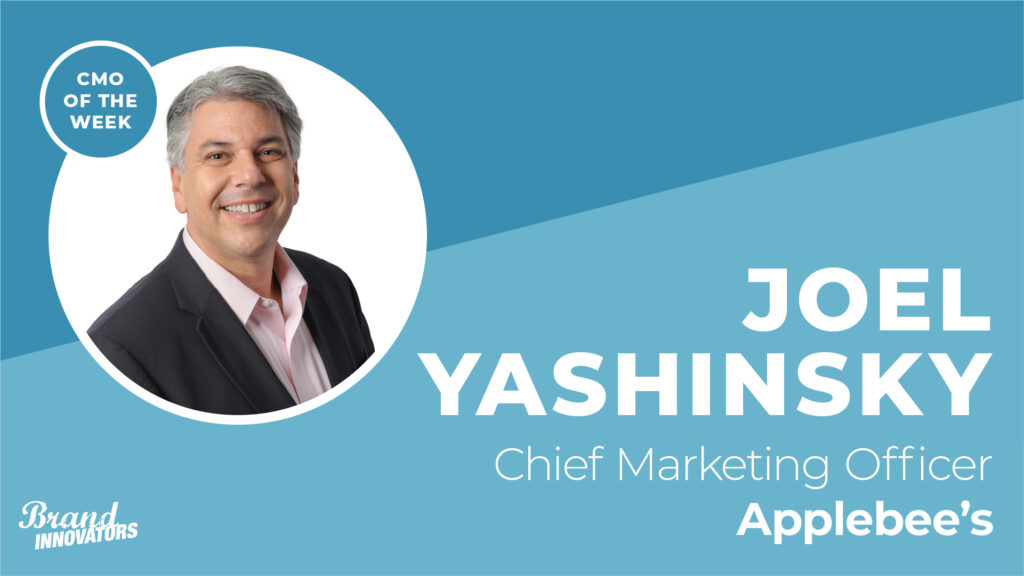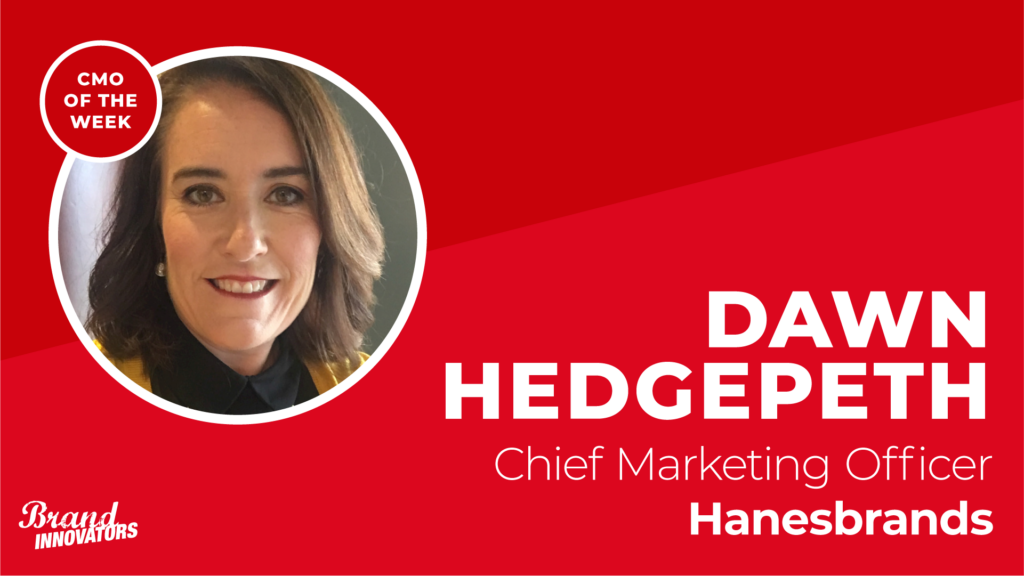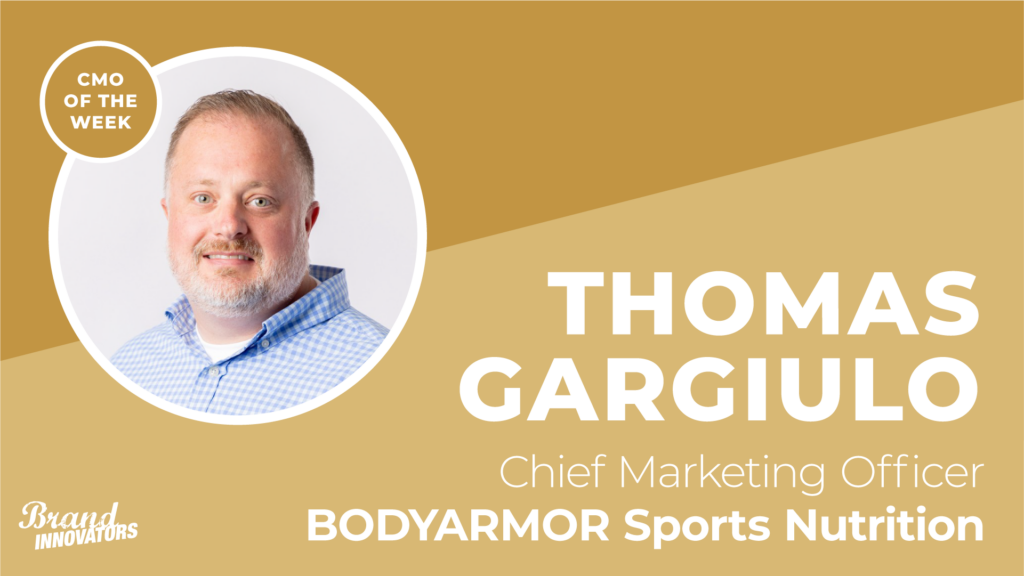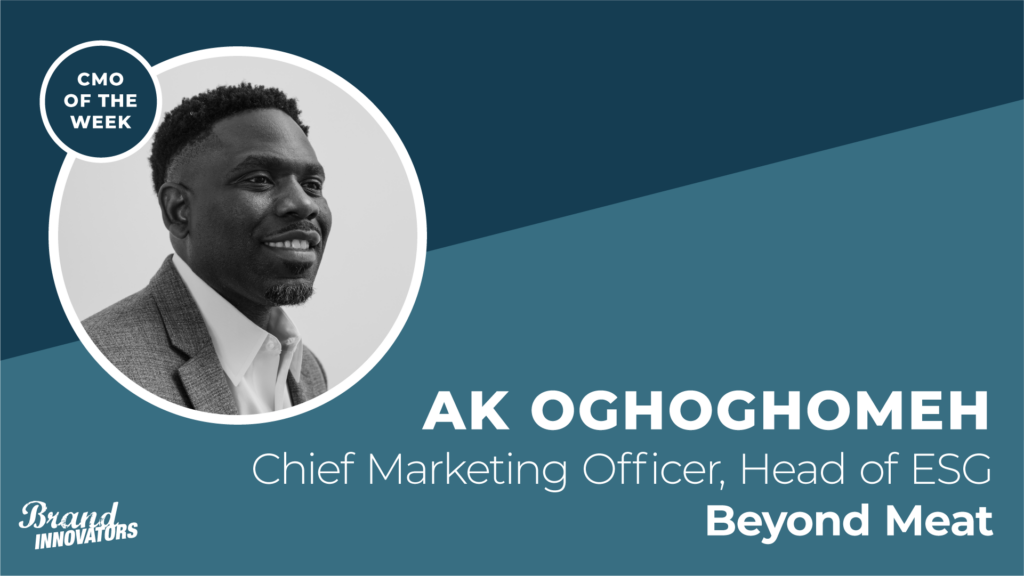One one of many hard-hit categories during the pandemic has been beauty, particularly cosmetics. Once it became clear that everyone would be sheltering in place for an indeterminate amount of time, many people began wearing less makeup than before, sometimes forgoing it altogether.
But 16-year-old cosmetic brand E.l.f. (which stands for “Eyes, lips, face”) has managed to not just stay afloat during the pandemic, but grow significantly. Kory Marchisotto, CMO at E.l.f. Beauty and president of Keys Soulcare, says that’s because the company “entered COVID in a positioning of strength,” thanks to what she calls a “brand recharge” that kicked off in June 2019 and “completely catapulted our business. We didn’t become strong during COVID, we were already strong and our success levers continued to propel us forward.”
The brand recharge Marchisotto is referring to was launched just a handful of months after she joined the company in February 2019. Though E.l.f had done well up to that point, she says the rationale behind the recharge was to update the brand’s positioning and strategy because so much had changed in beauty since it launched in 2004. And as Gen Z was becoming a larger part of its customer base, the company wanted to ensure it would have lasting relevance with this increasingly important cohort.
“Like most brands who reach the 15-year mark, E.l.f. needed a recharge,” she says. “The brand had done an extraordinary job to get where it was, and at the same time the entire beauty space had completely changed around it. So it was a moment to take stock and find the brand’s superpowers that consumers care most about, what it is they love most about the brand. And then we used that to further expand into the digital space and expand our digital footprint and lean into emerging platforms like TikTok where we could galvanize Gen Z.”
Initiatives for the recharge campaign included a focus on diversity, cruelty-free products and price-point accessibility, along with video-heavy digital campaigns and partnerships with beauty influencers. Its ads had cheeky copy such as “E.l.f. control—when you can have it all” and “Why the E.l.f. not—be extra without paying extra.”
The refreshed positioning has helped E.l.f’s earnings post more growth than most beauty companies in 2020. In its most recent earnings, the company posted revenue of $64.53 million for the quarter ended June 2020, up from $59.76 million in the same period a year ago — a nearly 8% increase.
As for what’s next for E.l.f., the company recently announced a new brand, Keys Soulcare, developed in partnership with Grammy-winning musician Alicia Keys. Keys Soulcare is focused on a more holistic approach to beauty, says Marchisotto, and will launch in December.
Marchisotto is a long-time beauty marketer, having held roles at LVMH, Shiseido and BareMinerals before joining E.l.f as CMO.
Brand Innovators caught up with her from her home to talk about her career path, how the brand leverages digital channels, increasing sales during a pandemic and what’s behind Keys Soulcare. This interview has been edited for length and clarity.
You’ve spent most of your career in luxury beauty products. What made you want to work in that field?
What I say about beauty is that beauty chose me. I went to Pace University in New York City to do financial marketing for a financial institution. That was my dream. When I was looking for my first full-time corporate experience, I began the interview process and interviewed and found finance to be cold and sterile. Then I got a call from my dad who had a friend who was a VP at LVMH and who was looking for someone to fill a position temporarily. So I went to the LVMH building, got up to the Givenchy floor and was instantly seduced by the environment. I quickly realized that beauty has an evocative ability and I was captivated by the idea of selling dreams and emotions and I never looked back.
E.l.f has a lower price point than most of the brands you have worked for. What made you interested in being CMO at a more affordable company?
I spent 20 years building luxury elite and exclusionary brands, and at the phase I had taken note of E.l.f. and E.l.f.’s inclusiveness and was interested in their ability to deliver experience to a vast audience. I worked for Issey Miyake and he said, “I am only interested in what I do, not what I know.” For me, I wanted to use my experience to conquer a new territory and diversify my path. When you think about working in luxury it’s all about rigor, attention to detail and captivating storytelling. Taking the experience and bringing it to a mass brand that prides itself of delivering a luxury experience for less that was incredibly appealing.
How has the E.l.f. positioning changed amid COVID-19?
You don’t always think about safety as a beauty brand. But for COVID, our positioning was about safety. We created hand sanitizer and moments of levity to give people more optimism, and a lot of efforts to ensure employees were safe.
For our community, we wanted to have a greater impact on distancing. How could we use our assets to promote hygiene? That’s where we came up with the concept of “eyes, lips, face, safe,” a Tik Tok challenge that became a music sensation. It was so recognizable and it was our best way to have a big impact.
We also leaned into our super powers of price and being digitally native. We deliver a very high quality product at low prices. We’re a good option for people price-wise. And while a lot of companies were trying to strategize, we were already digital-native and leaned into our digital and ecommerce platforms and adapted our engine to answer the call of what was in front of us.
Recent earnings showed the company growing despite the closure of stores and a global recession. Can you talk about how the positioning and the brand revamp buoyed sales, even as people were spending less?
One of the most important assets in the brand recharge and the success that we’ve seen is that we have our ear to the ground. We’re incredibly in touch with our consumers and their needs, wants and desires, and our entire recharge campaign was built on insights, which is why it had such a high level of relevance and resonance.
Another important thing is our innovation pipeline, which we kept strong during COVID. And we made that decision because that’s what our consumers asked us to do. So a lot of companies in beauty were shutting off their innovation pipelines and we asked our community, “What do you want to see during this time? What do you want to hear from us?” And their answer was overwhelmingly clear, which was that they asked us to continue to do what you do best.
The other thing we did was lean more heavily into skincare and our rapid response pipeline allowed us to launch products that offered self-care. So if we think about the onset of a line like cannabis-sativa, we immediately saw people were taking that movement for themselves, so we leaned in further with full-spectrum CBD, which was incredibly powerful to launch during COVID. So we’re innovating and leaning into self-care and into this notion that people want to take more time for themselves.
Walmart and Ulta were planning to increase shelf space for the brand. What do you think E.l.f. brings to those retailers that competing brands don’t?
We are a highly productive brand. The numbers show it’s one of the more productive brands on the selling floor. And we’re reaching cult status with Gen Z. What we have that gives us a true competitive advantage is that we make the best of beauty accessible to everyone. It’s a premium quality at a jaw dropping value and is truly unique. We’ve been getting feedback both from our community, as well as the broader universe as a brand that lives our purpose. We wear our purpose on our sleeves. It’s something we live 365 days a year and that matters more now than it ever has before. It’s part of our DNA, it’s what we do every day.
How has your media mix changed this year given the pandemic and recession?
Our focus has always been digital and it remains digital. So there’s no real change there.
What we shifted is continual optimization: Making sure the platforms we’re choosing are getting more or less levels of engagement based on our mission to galvanize the Gen Z cohort. So one part is more effective audience targeting. The second part is from a category perspective, we’re really leaning into the products that are sought after.
When COVID started, we had a major lip campaign underway. And we all know what happened at the early stage of COVID: no one was wearing lipstick. So what was amazing about E.l.f. was our ability to pivot. We shifted immediately away from the lip campaign and put the engine behind skincare. We were able to quickly take this big campaign that was planned and shift it to adjust to changing behavior patterns.
You recently launched Keys Soulcare with Alicia Keys. Can you talk about the genesis of that brand?
First, it’s not about a brand with her as a spokesperson. This is about a brand we are creating together. We are bringing Alicia’s vision and unique perspective on beauty to life. One of the things we are aligned on is our vision to blaze a new trail and to start a new conversation in beauty and that is to create soul care. A lot of brands focus on nail care, skincare, hair care. But they don’t focus on the whole you. So the essence of Soulcare is that beauty is not one thing that comes from one place. We see it more as an energy that lies at the intersection of body, mind and spirit. And this line is about setting an intention and practicing rituals that take care of the whole you. It’s about efficacious products, rich content, deep conversation and an uplifting community.
Can you talk about how you will position the brand in its upcoming launch for the holidays? What media will you use to get the marketing out there?
As we shifted from a single brand company to a multi-brand house, we wanted to ensure that each brand was delivering on a distinct yet complementary facet. So Keys Soulcare for us is a natural extension bringing new meaning to beauty that has a very inclusive point of view. In the last year we’ve added Keys Soulcare and we’ve also added W3ll People to our portfolio and that’s about reflecting accessibility and cruelty-free products.
So when you think about the three brands, E.l.f. Is our trend-driven beauty line delivering a premium experience at a jaw-dropping value with mass-price positioning, W3ll is plant-powered beauty at a “masstige”-price positioning, so just under that $20 marker, and Keys Soulcare takes us into a new category of premium lifestyle beauty brand that is about holistic wellness, and this is entry-level prestige positioning.
For Keys Soulcare, we’ll launch with the first ritual, as we call it, in December before expanding the collection further in 2021.
One of the superpowers of E.l.f. Is our digital capabilities, so we’d definitely use digital to propel this launch. And Alicia has an incredible ability to appeal to a mass audience, and what’s important for us is ensuring the inclusivity and that’s something that carries across all our brands.
Maureen Morrison is a consultant for Brand Innovators and founder of consultancy Irving Park LLC, based in San Francisco.




